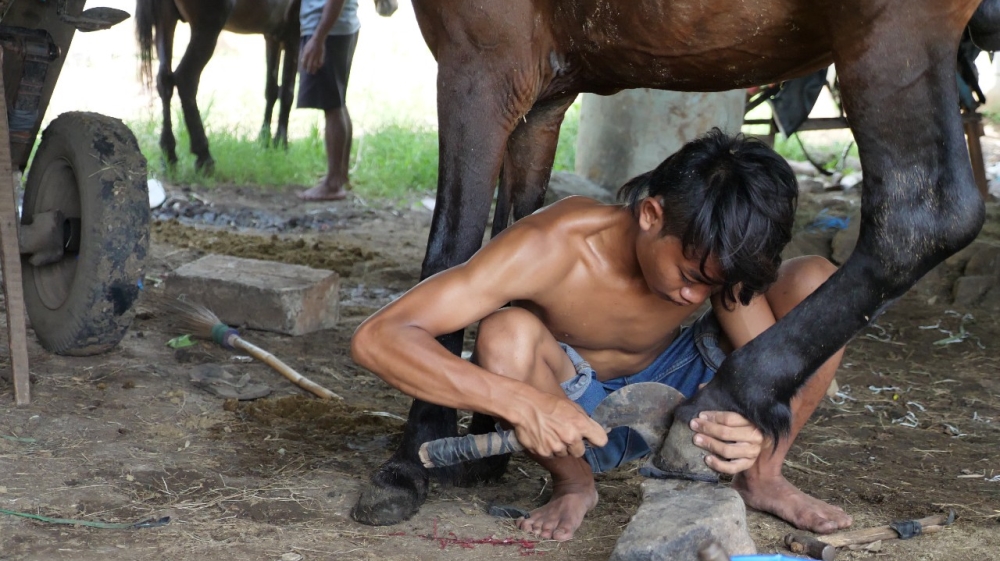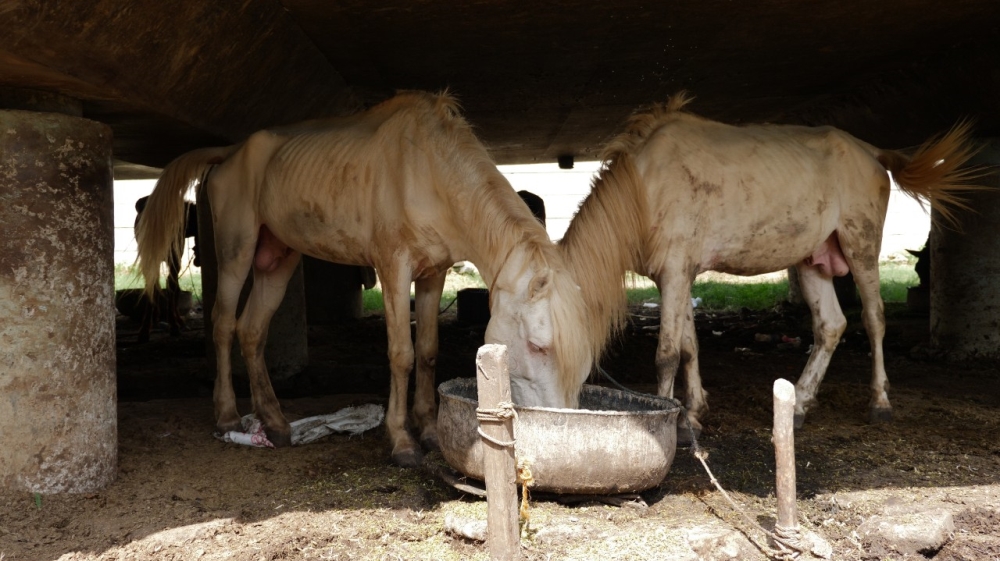A lonely Eid al-Fitr under a highway in Jakarta
Workers in the Indonesian capital struggle to earn a living and support their families amid the coronavirus pandemic.

Jakarta, Indonesia – Under a highway in northern Jakarta, a group of horse cart drivers gather and wait.
Tohirin, 59, is one of them. The coronavirus pandemic has slashed his earnings and separated him from his family.
Keep reading
list of 3 itemsIndonesia protests: Burials of COVID-19 victims raise fears
Recession looms for Indonesia after slowest growth since 2001
“Before the coronavirus, I used to take my cart to the National Monument. At that time, I would earn around $30 to $40. Because of the restrictions, I can’t do that anymore,” he told Al Jazeera.
“Now I only go once every two or three days. I don’t go out every day, because there aren’t many places I can go to now. Before the restrictions I would go out with my horses every day.”
Public sites are closed due to mass social distancing restrictions in Jakarta – making it harder than ever for Tohirin and fellow horse cart drivers to find passengers, and earn a living.

“Lately, I only earn around $5 a day. There aren’t many places I can go now.”
The men have used this land under the highway as a makeshift stable for the horses for 13 years.
Now, with most public sites closed – they are spending more time here than ever before.
It is hot – but there is nowhere else to go. The men cook here, tend to their horses, and some of them even sleep under the highway.
Tohirin has ridden through the streets of Jakarta in his horse buggy for more than 20 years.
“My horses’ names are Joni and Jaka. In this job, I’m the boss of the horses,” he said.

There are dozens of horses under the highway – some are wearing sparkling blinkers and brightly coloured saddles.
But their elaborate costumes could not hide the distressing reality – the horses are emaciated, their bones jut out and their eye sockets are sunken.
“Before the virus, I would feed them three times a day. But now, there are days I can’t give them horse food, only grass. That’s why they are skinny.”

Tohirin’s wife, his five children and seven grandchildren all live outside Jakarta, and he has not seen them since the COVID-19 outbreak began.
It means, for the first time, he will spend the Muslim holiday of Eid at-Fitr alone.
His family is like millions around Indonesian – marking Eid with subdued celebrations, with no means to be with their loved ones.
“I haven’t given them any money for the past five months. I haven’t been able to see them. I want to send them money, but I have none,” he said.
“I miss them so much – but because of this situation, like it or not, I cannot go home.”
